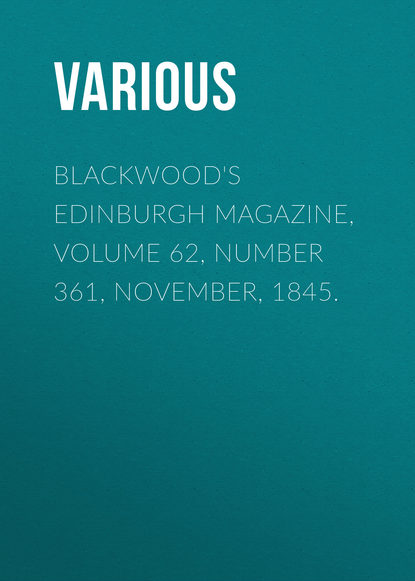По всем вопросам обращайтесь на: info@litportal.ru
(©) 2003-2024.
✖
Blackwood's Edinburgh Magazine, Volume 62, Number 361, November, 1845.
Автор
Год написания книги
2017
Настройки чтения
Размер шрифта
Высота строк
Поля
"The wretches!" murmured Anne of Austria; "they shall pay dearly for their insolence." Then, turning to D'Artagnan, "Sir," said she, "you have this night given me the best advice I ever received in my life. What is next to be done?"
"We can set out when your majesty pleases. I shall be waiting at the foot of the private staircase."
"Go, sir," said the queen. "We will follow you."
D'Artagnan descended the stairs, and found the carriage at the appointed place, with the guardsman sitting on the box. He took the hat and coat of M. de Gondy's coachman, put them on himself, and took the guardsman's place. He had a brace of pistols in his belt, a musquetoon under his feet, his naked sword behind him. The queen appeared, accompanied by the king, and by his brother, the Duke of Anjou.
"The Coadjutor's carriage!" exclaimed she, starting back in astonishment.
"Yes, madam," said D'Artagnan "but be not alarmed. I shall drive you."
The queen uttered a cry of surprise, and stepped into the coach. The king and his brother followed, and sat down beside her. By her command, Laporte also entered the vehicle. The mantelets of the windows were closed, and the horses set off at a gallop along the Rue Richelieu. On reaching the gate at the extremity of the street, the chief of the guard advanced at the head of a dozen men, and carrying a lantern in his hand. D'Artagnan made him a sign.
"Do you recognise the carriage?" said he to the sergeant.
"No," was the reply.
"Look at the arms."
The sergeant put his lantern close to the pannel.
"They are those of M. le Coadjuteur," said he.
"Hush!" said d'Artagnan. "Madam de Guéménée is with him."
The sergeant laughed. "Open the gate," said he; "I know who it is." Then, approaching the mantelet – "Much pleasure, Monseigneur," said he.
"Hold your tongue!" cried D'Artagnan, "or you will lose me my place."
The gate creaked upon its hinges; D'Artagnan, seeing the gate open, flogged his horses, and set off at a rapid trot. In five minutes he had rejoined the cardinal's coach.
"Mousqueton," cried D'Artagnan to M. du Vallon's servant, "open the door of his majesty's carriage."
"It is he!" exclaimed Porthos, who was waiting for his friend.
"In a coachman's livery!" cried Mazarine.
"And with the Coadjutor's carriage," said the queen.
"Corpo di Dio, Monsieur d'Artagnan!" said the cardinal, "you are worth your weight in gold!"
We cannot attempt to give more than these slight glimpses of the eight volumes now lying before us, in which the extravagance and exaggeration of many of the incidents are only redeemed by the brilliant diction and animated narrative of their clever but unscrupulous author. It would be too lengthy to give even a sketch of the chain of incidents that succeeds those above detailed, or to show how, according to M. Dumas, D'Artagnan and his friends became instrumental to the conclusion of the treaty by which the hostilities between Frondeurs and Mazarinists are for the time brought to a close. The first act of the war of the Fronde is over; Louis XIV., now within a year of his majority, re-enters the capital with Anne of Austria and Mazarine, D'Artagnan, now captain of mousquetaires, riding on one side of his carriage, and Porthos, now Baron du Vallon, on the other. Baron Porthos goes back to his estates, happy and glorious; Aramis and Athos return to the seclusion whence the stirring times had called them forth, the latter leaving his son in charge of D'Artagnan, who is to take the young man with him to the Flemish wars. The restless spirit of the Gascon abhors the idea of repose.
"Come, D'Artagnan," said Porthos, as he got upon his horse to depart, "take my advice; throw up your commission, hang up your sword, and accompany me to Du Vallon. We will grow old together, whilst talking of our past adventures."
"Not so," replied D'Artagnan. "Peste! the campaign is just opening, and I mean to make it. I hope to gain something by it."
"And what do you hope to become?"
"Pardieu! who can tell? Marshal of France, perhaps."
"Ah, ah!" said Porthos, looking at D'Artagnan, to whose gasconading he had never been able quite to accustom himself. And the two friends parted.
"You will prepare your best apartment for me, Madeleine," said D'Artagnan to his handsome hostess, as he re-entered his hotel. "I must keep up appearances, now that I am Captain of Mousquetaires."
THE GRAND GENERAL JUNCTION AND INDEFINITE EXTENSION RAILWAY RHAPSODY
By a Provisional Committee of Contributors
Though the farmer's hope may perish,
While in floods the harvest lies,
Speculation let us cherish,
Let the Railway market rise!
Honest trader, whosoever,
Sick with losses, sad with cares,
Quit your burden now or never,
Cut the shop and deal in shares.
Spendthrift – short of drink and dinners,
Half-pay captain, younger son,
Boldly throw while all are winners,
Laugh henceforth at debt and dun.
Come, ye saints, whose skill in cavilling,
Shock'd at skittles, cards, or dice,
Thinks, except for Sunday travelling,
Railway gaming is no vice.
Hither haste, each black-leg fellow,
Quit the turf or loaded bone;
Like your brother-black Othello,
Own your occupation's gone.
Tribes that live by depredation —
"Bulls" and "Bears," and birds of prey,
See the coming spoliation,
Scent the premiums far away.
"Stags!" your rapid forms revealing,
Show awhile your front so bright,
Then from your pursuers stealing,
Vanish sudden out of sight.
Leave all meaner things, my St John,
For the locomotive race;
Post your tin upon the engine,
Go ahead, and keep the pace.











